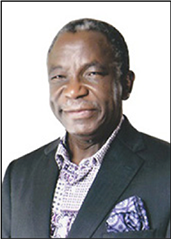The benefits
The course’s interdisciplinary perspectives provide insight about a range of business and social environments, and prompt innovative ideas that can be applied in disparate industries and disciplines. Inviting guest instructors that are both theorists and practitioners allows students to tailor the course to their own goals: “Students are exposed to both the theoretical principles and the practical ideas to create their own jobs or identify interests, and imagine different possibilities and applications.”
The challenges
The course planning and logistics of recruiting guest instructors is “a lot of work, I must say. It’s a labor of love.” Olupona hires graduate students with entrepreneurial experience to assist with identifying Harvard instructors to team teach and practitioners willing to travel to Harvard and provide expertise to students.
Takeaways and best practices
-
Allow students to identify their own interests.
Olupona and his teaching team sort students into project groups in the first class session based on common goals: “We have them share their interests, why they are taking the class, what benefit they hope to gain, and what type of entrepreneurial project they want to work on.” In the final class, groups present a business plan to a guest panel for feedback and many continue to pursue them well after the course has ended.
-
Brief guests in advance on student projects.
While many sessions tackle universal challenges (e.g., budget, evaluation of success), students often find that guests’ expertise informs their business plans in especially helpful ways and receive targeted feedback. “The speakers are generous with their time. What they give to students is more than we bargained for, but what keeps us going are the significant benefits to the students.”
-
Curate a repository to fall back on.
While he has not yet had to substitute a guest lecture with a video, Olupona arranges to have each class session recorded in case he is unable to schedule an appropriate person in any given semester.
Bottom line
The course is often oversubscribed due to its reputation and students call it “transformational.” Olupona suggests this is due to the observed synergy that emerges between theory- and practice-based sessions, interdisciplinary expertise, and diverse enrollment due to cross-registration from the College, GSAS, and the professional schools.
 Jacob K. Olupona, Professor of African and African American Studies and Professor of African Religious Traditions, collaborated with students from Harvard Graduate School of Education in 2013 to develop a team-taught course on entrepreneurship that would appeal to learners across the University. “They felt entrepreneurship was important and central to what people are doing.” Entrepreneurship in Africa is organized topically (e.g., agriculture, energy, healthcare) around the unique challenges and opportunities to launch and grow an enterprise in the African context. Course sessions are led by an interdisciplinary mix of invited Harvard instructorsfrom arts and sciences, business, education, law, and public health, as well as business leaders from Africa.
Jacob K. Olupona, Professor of African and African American Studies and Professor of African Religious Traditions, collaborated with students from Harvard Graduate School of Education in 2013 to develop a team-taught course on entrepreneurship that would appeal to learners across the University. “They felt entrepreneurship was important and central to what people are doing.” Entrepreneurship in Africa is organized topically (e.g., agriculture, energy, healthcare) around the unique challenges and opportunities to launch and grow an enterprise in the African context. Course sessions are led by an interdisciplinary mix of invited Harvard instructorsfrom arts and sciences, business, education, law, and public health, as well as business leaders from Africa.
